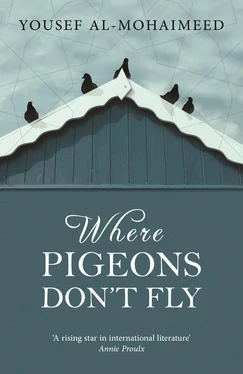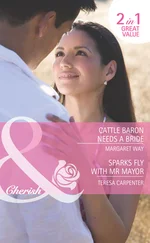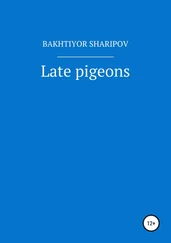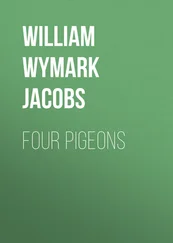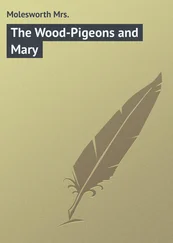She phoned him and he came back, turning around on Quwa al-Amn Bridge. Fahd waited for him on the doorstep, the Samsonite suitcase beside him, and when the car pulled up, he opened the rear door, put in the case and jokingly said to his father, ‘Welcome home, Dad.’
Suleiman chuckled and asked for some water. His mother gave him a new bottle of mineral water and as he rushed back down the steps she shouted for Fahd and handed him a glass of water from the fridge in the kitchen. Suleiman drank, his eyes stern.
‘Look after yourself, my man,’ he said. ‘And your mother and sister, too.’
Then he moved off.
These were his last words. Off he went, rushing to make the second court session, but he never arrived. Soha called him half an hour later on his mobile phone as she usually did.
‘The number you have dialled is currently unavailable, please try again later.’
The recorded message was slurred, heavy and menacing. Ten minutes later she tried again and she kept trying until just before noon.
Panicked, Fahd phoned his friend Saeed and asked him to come over right away. Disoriented and anxious he climbed in next to him.
‘Where to?’
‘The highway to look for my father!’ Fahd snapped.
Saeed hesitated and then made a call that lasted for a few minutes. He suggested they ask at the accident and emergency departments of the major hospitals to find out if anything had happened — God forbid.
Saeed’s Honda Civic gradually descended to King Fahd Road and from there to Khazan Street, taking a left on to Assarat Street and passing through the lights outside the gate to the Central Hospital, before they came to a stop beneath the bridge that led to Aseer Street, where the trees slept still as stones. Trembling, Fahd got out and followed Saeed to the entrance of the emergency ward. They questioned a young man at the reception desk and he directed them to another building that dealt with traffic accidents.
The Sudanese receptionist had a paper cup of tea in front of him, a Lipton label spilling from its edge. He was sprawled out, yawning violently in the summer’s noonday heat. They made their request and he coldly opened a vast leather-bound ledger and turned the pages until he came to the day’s entries, then ran his finger down the morning’s accidents as though scrutinising a menu at a restaurant.
‘His name’s not here.’
Seeing that they hadn’t moved away he returned his gaze to the ledger and asked about the make of car. Fahd told him and the Sudanese placed his finger next to an incident that had taken place that morning on Qaseem Road involving a red Caprice. Fahd’s blood surged, turning to boiling water that flowed down over his feet.
‘Red or purple?’
‘Says red here.’
Saeed inquired about the name of the victim and he spun the ledger around to show them the space reserved for the name, Unknown , then beneath that in the box for the victim’s condition, Injured , which had been scratched out in red pen and next to it added the legend: Deceased .
When Fahd’s eyes fell on the word Deceased his tongue froze, a lump of wood wedged in his throat. Fighting his desire to collapse he asked, ‘Fine, so how do we check this person’s identity?’
Giving a luxurious yawn, the man said indistinctly, ‘See this number? You can go and check in the morgue.’
It was terrifying for these two teenage boys to contemplate going to the morgue with nothing more than a number — No. 67. His imagination ran away with him: the guard examining the number then heading over to one of the drawers and yanking it out as though it were a carpart or some file in a government archive. He breaks open the tape around the head of the cadaver, wrapped like eid candy, and the fabric loosenens. Bit by bit he pulls it back to reveal hair, plastered down like the hair of a mummy, then a face, peaceful and serene.
‘This yours?’ he’d ask, nonchalantly.
They wouldn’t be able to move, their feet paralysed.
How can we bear to see our father, whose laughter, smile and mockery we worship, become a wreck of a corpse. How? The same thought occurred to them both, for Suleiman was not just Fahd’s father; Saeed, who had had no one else to raise him, thought of him as a father too.
Without entering the morgue they lurched woozily out of the door and Fahd almost fell as he stumbled against a street vendor. A white ambulance drove by without sounding its siren: just a sullen light flashing in the glum afternoon. Two women spread out their wares on the pavement facing the accident ward while a lone woman sat in the shade of a small tree by the hospital’s steel wall, latching her child to her breast beneath her abaya . A boy led an old man who was inching his stick along the pavement and a young man emerged from the accident ward followed by a Filipino nurse who guided a drip stand alongside him as they headed for the emergency department.
‘There is no god but God! God willing it isn’t your father! Just the same make of car.’
Saeed was consoling Fahd or maybe he was searching for a small chink of light in the darkness on behalf of them both, because he added, ‘Anyway, there’s a difference between red and purple. I’m sure it’s just a coincidence.’
Suddenly Fahd collapsed, sobbing crazily as his eyes flickered back and forth between the people and cars around him. ‘My father’s dead! My father’s dead, people! Dead!’
Saeed embraced him. ‘Seek refuge from Satan!’ he scolded. ‘You should be ashamed of yourself. First we have to make sure it’s him, not someone else, and secondly, you’re a man and you have to act like one in a crisis and make things easier for your mother and your sister at home.’
He got Fahd into the car and sat in his seat, thinking hard and repeating, ‘There is no power or strength save through God.’
As they were about to set off for the mosque and the washing of the body, Fahd’s mother came up and pushed a small bottle of agarwood oil into his pocket, saying that his father had been fond of it and liked to use it when he went to Friday prayers with the two boys. When Fahd opened it, taking the small glass stopper from the bottle with trembling fingers and put it to his nose, his father appeared in front of him, walking two or three paces ahead of Fahd and Saeed, his fragrant scent vanishing between the columns of Mohammed Bin Abdel Wahhab Mosque in Ulaya as he selected a place wide enough for Fahd to sit on his right and Saeed on his left.
After the body had been wrapped, Fahd took out the agarwood oil and thought of wiping the stopper against the cotton but Ibrahim took the bottle from him and sprinkled dark drops on the corpse.
Fahd could not believe that his father had really done it, that he had closed his eyes forever. How miserable he felt! He wished that Suleiman had given in and taken him with him, that they might have gone together to the heavens.
But who can be sure? I might have been saved only to suffer even more. How often I imagine myself sitting next to him as the Caprice veers from left to right across Qaseem Road then plunges off in the blink of an eye to smash into the iron fencing that stops the camels wandering on to the road. The body of my father, who never wore a seatbelt, leaps up and strikes the ground, leaving nothing but a small bruise at the base of his skull. Did he die of fright, or did he bleed for the hour it took someone to come to his aid, like the accident report stated? If I had been alive alongside him I might have saved him, stood my dusty, dizzy body on the tarmac and held out my arm in front of the first car to pass and forced it to stop. We could have taken my father to the nearest emergency ward and saved his life!
Читать дальше
